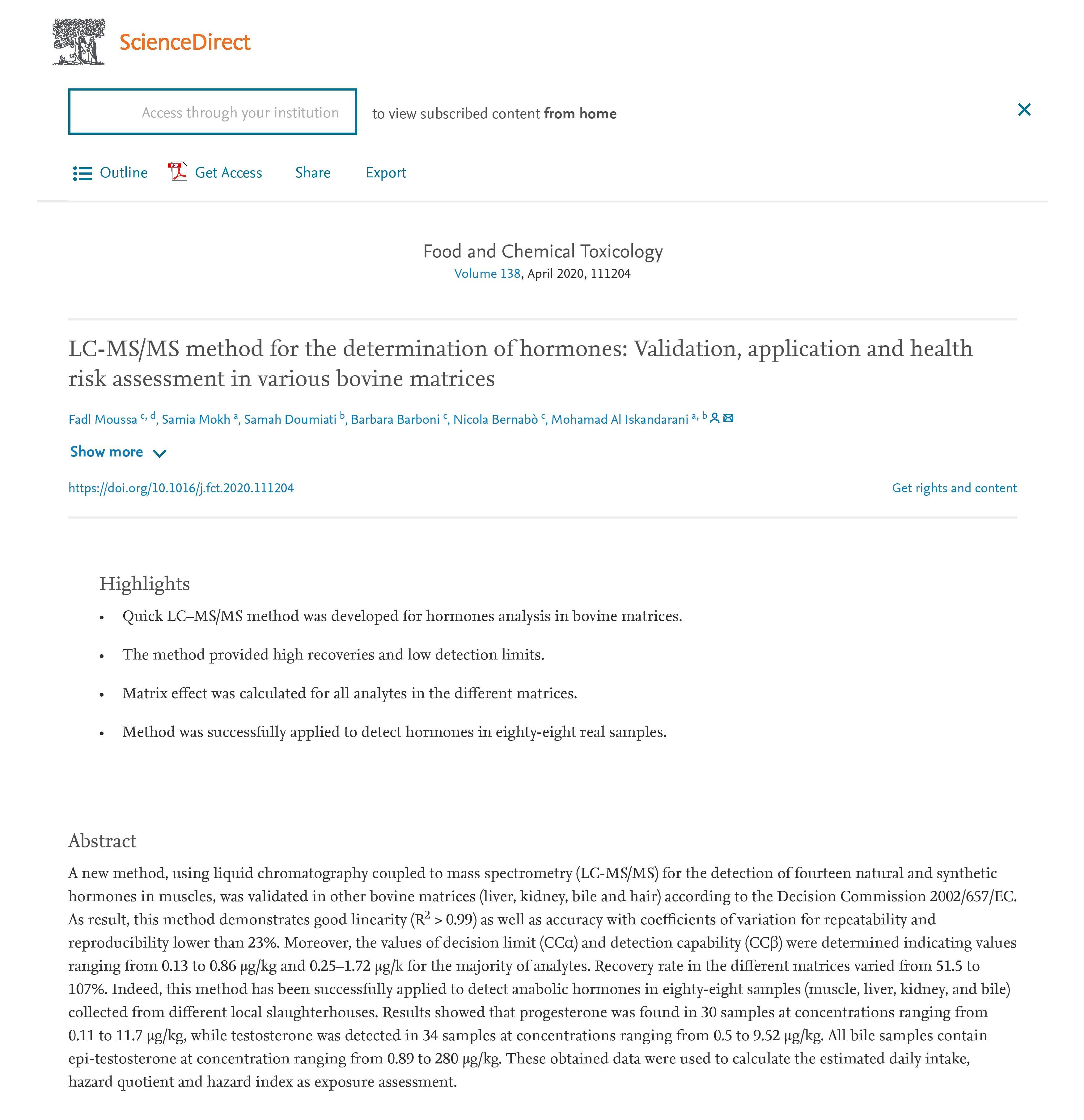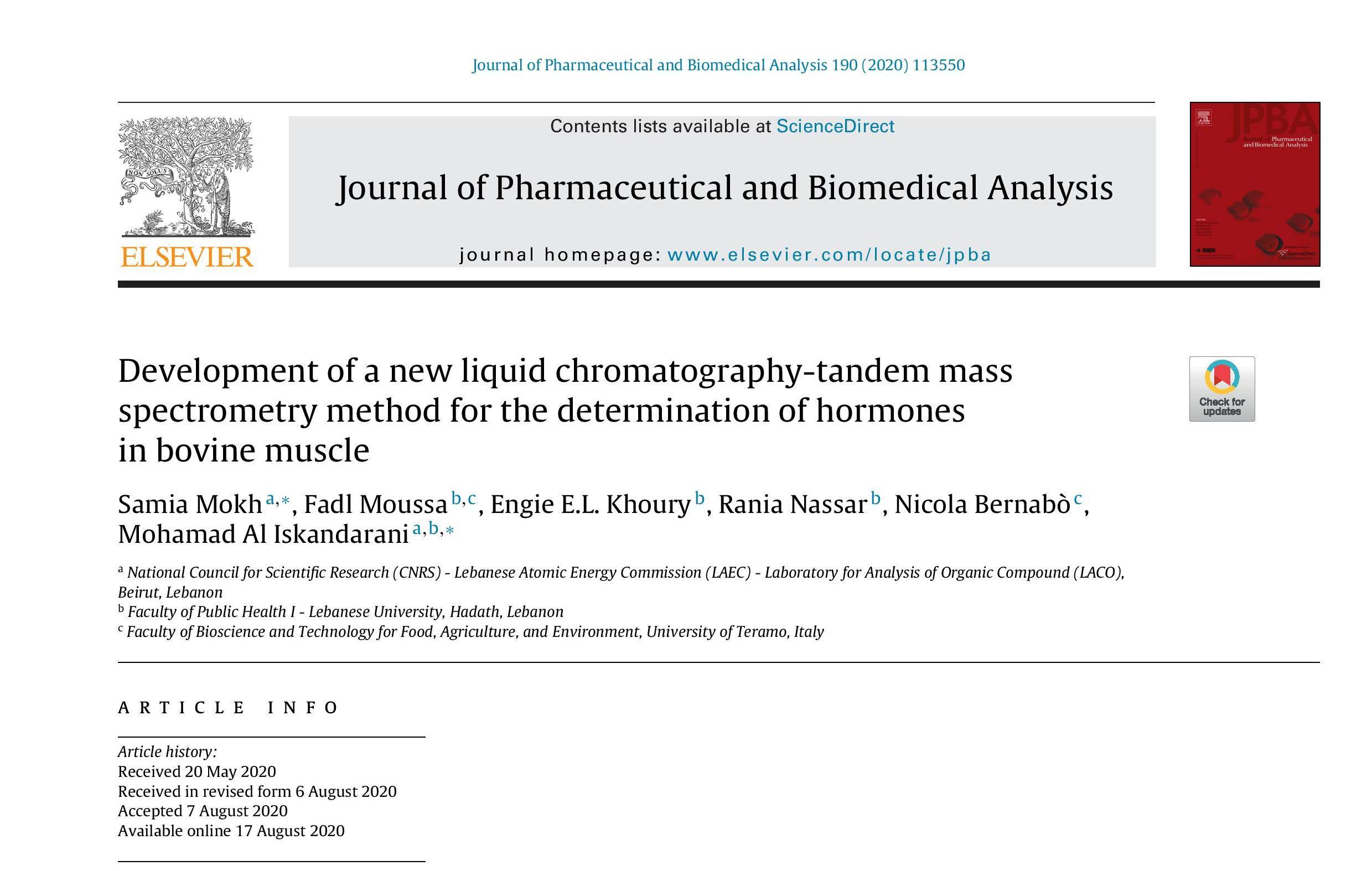The two international peer reviewed journals “Food and Chemical Toxicology” and “Pharmaceutical and Biomedical Analysis” published two scientific articles conducted by researchers from the Lebanese University, who work within the team of the Water and Food Analysis laboratory in the Faculty of Public Health and the Analysis of Organic Compounds laboratory of the Lebanese Atomic Energy Commission (LAEC) of the National Council for Scientific Research in Lebanon (NCSR), in cooperation with the Laboratory of the Faculty of Biological Sciences and Technology for Food, Agriculture and Environment at the University of Teramo, Italy.
The first research proposes a new analytical method according to modern European standards to determine the quantity of hormones in the muscle of cows.
Article 1: LC-MS/MS method for the determination of hormones: Validation, application and health risk assessment in various bovine matrices
The second research deals with expanding the cycle of monitoring the use of hormones by verifying the effectiveness of the analytical method to discover them in other organs in cows such as liver, kidneys, gallbladder juice and hair.
Article 2: Development of a new liquid chromatography-tandem mass spectrometry method for the determination of hormones in bovine muscle
For the first time in Lebanon, samples were taken from various slaughterhouses to check the presence of hormones. The results indicated the presence of four types: Progesterone, Testosterone Epitestosterone, porpyl thiouracil and some had higher than acceptable rates according to European standards. It is known that several international studies confirmed the danger of human exposure to these hormones accumulated in food.
The two articles form part of a PhD dissertation prepared by the student Fadl Moussa in partnership between the Lebanese University – Doctoral School of Science and Technology and the Italian University of Teramo - Faculty of Biological Sciences and Technology for Food, Agriculture and the Environment, under the supervision of Dr. Mohammad Al-Iskandarani from the Faculty of Public Health at the Lebanese University, Dr. Samia Al-Mokh from LAEC - NCSR and Dr. Nicola Bernabò, from the University of Teramo, Italy.

